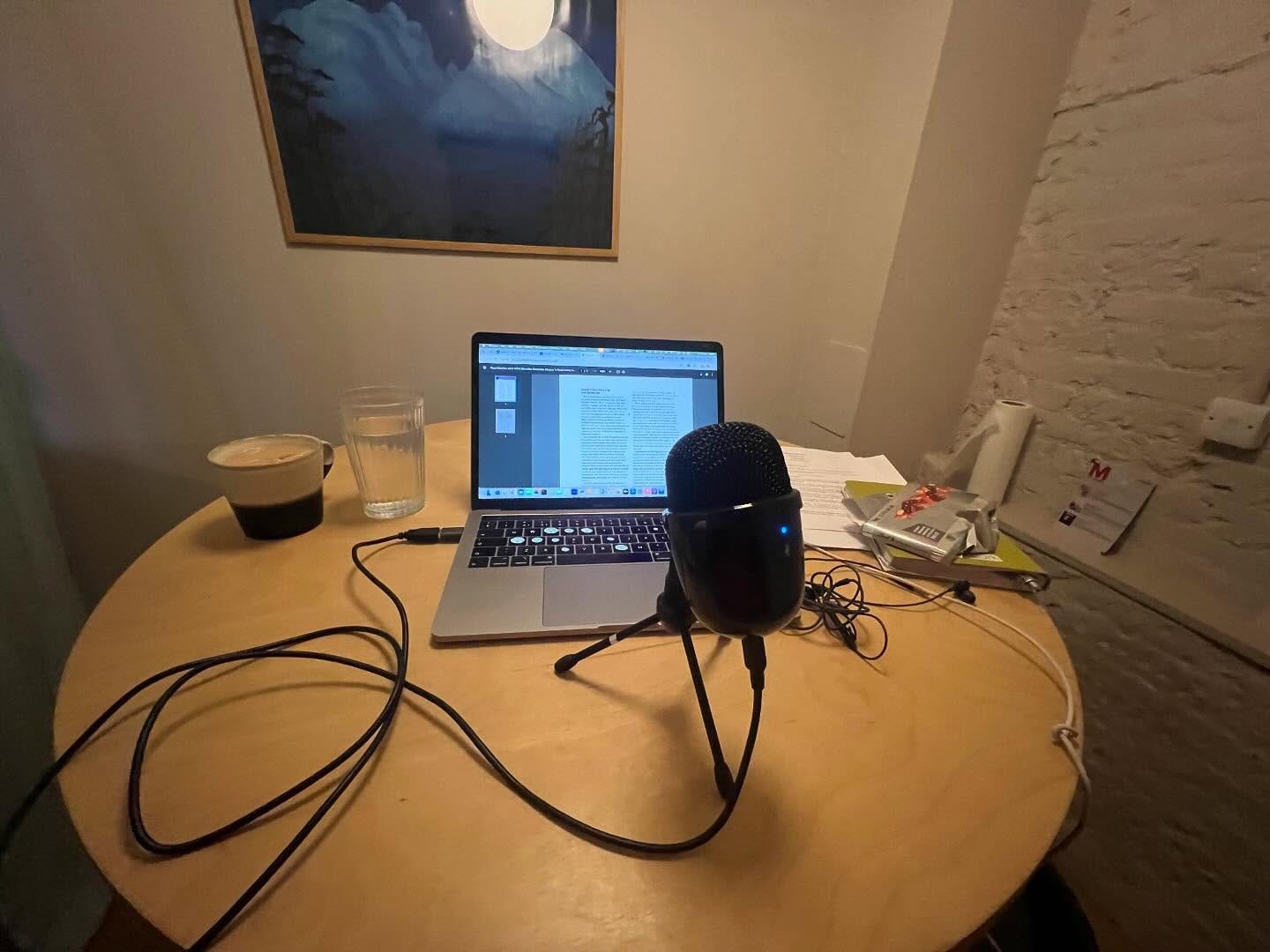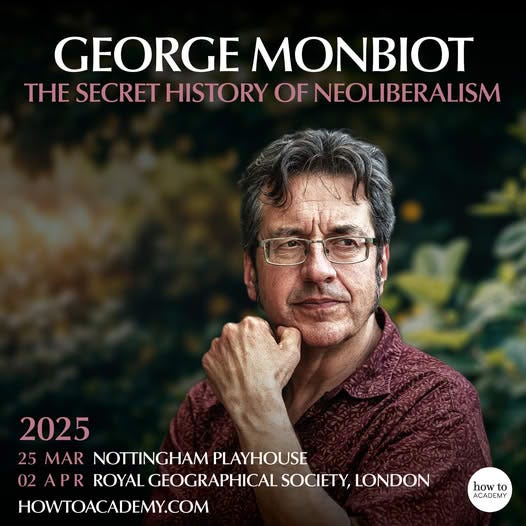An Orderly or Disorderly New Year?
Iconic Lefty trite quotes to put things in perspective and was the Trump assassination attempts the dog that didn't bark?
From the Trump election win to the ongoing conflicts across the Middle East, Sudan and Ukraine… 2024 was certainly a year full of Disorder. But what about 2025? Is there any realistic hope that it could be more orderly? Well maybe there is! And maybe the time has come to take more seriously the *potential* advantages of certain Trump policy proposals. (or maybe not? hahahah)
In this episode, (Listen on Apple podcasts here or Spotify here) we continue our spotlight on Hebrew music as it is still Hannukah and the tune we start out with asks the question ‘What will happen in the new year? We have to wait and see’. Jason is joined by fan favourite Jane Kinninmont to discuss the past year: reflecting on the myriad challenges faced by Orderers. They dissect the most Disordering events of 2024 as well as providing some hypotheticals like the various dogs that didn’t bark: the assassination attempt against Trump leading to an American civil war or a hot war between Israel and Iran emerging due to a miscalculation.
Plus: what is the background of Susan Wiles, who is she, what stock does she come from, and what is her likely role in the incoming Trump government (could she be a power behind the throne and a real orderer)? We also discuss the centrality of the immigration issue to the global neo-populist movement and the idea that the Trump assassination attempt was the dog that didn't bark…
Meanwhile, Jason wonders: has the center-left got it all wrong? Have we been too biased on the pod in 2024 in cheerleading for Starmer and American centrists? This chain of thought culminates in some musings on Angela Merkel’s leadership, and her missteps, and the influence of conspiracy theories in popular culture. The show ends predictability by our discussing how each of us can help to order the disorder in 2025, emphasizing the importance of civic engagement and individual empowerment to help drive positive policies.
(Listen on Apple podcasts here or Spotify here)
Key Quotes:
Is there a way in which Team Trump actually has a sense of order? There's two competing ones, I think. There's the conservative sense that things used to be better in the good old days, which is common also to groups like UKIP or Reform in the UK, you know, things were better before the internet and the migrants and the young people, etc. And then there's another camp that just basically says that it is a world order, but it's a transactional world. We've got to have a strong man to work with the other strong men in the world. And all the stuff the Democrats say about law and institutions are just lies. Everything's corrupt and we're just more honest about it. So there's these two competing trends.
The ability of nation states to coordinate towards optimal outcomes together is decreased. And each year is decreased in the previous year. And obviously 2025 with Trump at the helm, even if Starmer and Trudeau and others can do the G7 and they can whatever the ability to coordinate to win, win outcomes together. And that's what I posit about the Enduring Disorder, which is that it's not that we don't have technologies to make the world better. We have more of those every year. It's not that we don't have technologies to fight climate change. We have more of those. It's not that we don't have technologies to create more economic growth. We can actually create much more economic growth than we could ten years ago. It's that we can't coordinate between the key loci of power to do so in an optimal way … That's the part that's not working.
THIS IS WHERE JANE RECORDS
Subscribe to our Substack:
NOW FOR SOME LEFTIST QUOTES REPURPOSED
JANE: I think we're still trying to process what's happened in 2024 and also hoping that it doesn't have too much in store for us before it finishes. Honestly, I have lost count of the number of times people have said this year that, quote, that there are decades where nothing happens and weeks where decades happen.
JASON: I know that this is a famous Lenin quote and that it actually, in addition
to being correct in some ways, it encapsulates his ideas about a progress of
history. Has the events of the last year showcased that history is in a Hegelian,
Marxist, Leninist way, moving towards something?
JANE: If it's moving towards something, that something is totally unclear to me, but there are probably a number of different actors who are completely convinced that it is moving towards something that they can see, but all of those visions are contradictory. And I think part of what we're seeing with the global disorder is that many Western countries no longer think that history is moving towards progress, justice, democracy, etc. And that is part of what's going on. There is a loss of a sense of direction. There's a lot of talk about rules -based international order, but less about what that now means and where it's heading.
JASON: This is an absolutely critical point, Jane. When we were both kids in the '80s and early '90s, there was a sense in Thatcherite, Reaganite, Clintonite, America, and Britain. Our system, the capitalist rules -based West, was triumphing over the communist east and that even if we might have too much capitalism, too little, too much regulation, too little, those were just details and in a end -of - history Fukuyama in way we were moving forward and we were proceeding towards a certain end which was liberal democracy with liberal free markets. I already sensed by the time I was in university that the cultural confidence of my parents' generation was lost. The core curriculum was being thrown out. Plato was actually a fascist. We shouldn't read him. You don't need to stress so much about this Aquinas. It's unreadable anyway. He's just a dead white Christian theologian. You don't need Aquinas anymore. And I had a sense that that
was worrying that we weren't going to have a shared vision of what it was that we
were working for, because we hadn't read our Plato and our Aquinas together. But
this has gotten much, much, much worse now, Jane, because even within our given
cultural traditions, I don't think that the British centre left, even the centre
left, which is say, secular and in the Labour Party and pro -European, has its own
vision. In other words, we've so hyper -fragmented. How do you read where we're at?
JANE: I mean, we both were teenagers when it was the end of the Cold War, so I think there was a zeitgeist then that there isn't for my kids who are seven and ten
beginning to get interested in world affairs, so that is a difference. But I think
that, fundamentally, I'm going A quote, this one from Gram Street, right, if we're going to go for the leftist quotes about being an optimist of the heart and a pessimist of the head, right? I think when I think about history rationally, it is not progressing towards a teleological end of history because there is no law that pushes history in that direction. But when we think about ourselves as people who do stuff we have to have a sense that we are going to make things better and we are going to get other people to work with us to make things better. So there might not be history just moving towards a destination but there is also choice and free will and that is something that isn't pure chaos. So there needs to be some kind of confidence to move forward to a better world, we need to learn stuff from the past because people have been thinking about these things for decades, but that should be informed by a really wide bunch of stuff, all of the things that you mentioned and things from other countries and other traditions. Why not? Maybe only the extreme left and right actually have a vision that history is progressing towards something. On the extreme left, it's towards potentially nationalization of the means of production, some bizarre view of complete gender and group equality and the writing of wrongs like reparations to various minorities and certain self -determination movements like for the Palestinians or the Kurds or whatever. And on the right, it's towards the superior races and cultures generally understood as white Christians, But in East Asia and other places as the people from those parts of the world or if you're a BJP nationalist Hindus That they will have their righteous place in the Sun and on the extreme right They believe that the events of the last year showcase that yes The white race is now going to reassert itself with Trump and Putin and the svenska -democraten and and Marine Le Pen and where others and We're moving towards a situation where the white Christian race can showcase its strength. What I would say as a neutral observer is that we're moving more towards the enduring disorder. You know, I've been writing about the enduring disorder now for seven years. I hate to be right, and this is a podcast where I will tell you every week that I hate to be right, but I think I have been right, which is that the ability of nation states to coordinate towards optimal outcomes together is decreased and each year is decreased in the previous year and Obviously 2025 with Trump at the helm Even if Starmer and Trudeau and others can do the G7 and they can whatever the ability to coordinate to win -win outcomes I think is decreased and that's what I posit about the enduring disorder Which is that it's not that we
don't have technologies to make the world better. We have more of those every year
It's not that we don't have technologies to fight climate change, we have more of
those. It's not that we don't have technologies to create more economic growth. We
can actually create much more economic growth than we could 10 years ago. It's that
we can't coordinate between the key loci of power to do so in an optimal way,
which is different than what a Milton Friedman or Hayak in person would say, which
is that we can maximize growth, but it's just very difficult to share the winnings
equally, which I would partially agree with. But I'm saying we can't even maximize
growth and we can't maximize trade -offs vis -a -vis growth because it's the
coordination complexities between private actors and states and different countries and
different religious and sectarian groups. That's the part that's not working.
(Listen on Apple podcasts here or Spotify here)
MORE BACKGROUND
For more about our Glaswegian Fan Favourite Jane Kinninmont: https://europeanleadershipnetwork.org/person/jane-kinninmont/
And her recent fascinating article in The Times of India ‘Ayatollah after Assad’: https://timesofindia.indiatimes.com/blogs/toi-edit-page/ayatollah-after-assad/
Alex has written this great overview article about the situation in Georgia from her recent trip: https://bylinetimes.com/2024/12/17/the-west-will-regret-abandoning-the-georgian-people-to-the-clutches-of-russia/
If you like the way the Disorder Pod sounds check out ‘Can a steel town survive if its furnaces are turned off? – podcast’ where the reporting and the audio production are done by our producer George McDonagh: https://www.theguardian.com/news/audio/2024/dec/19/can-a-steel-town-survive-if-its-furnaces-are-turned-off-podcast
For
AND TO CELEBRATE THE LAST NITE OF HANNUKAH WE SHARE more of Yoav Oved’s music visit his Facebook page https://www.facebook.com/YoavSings/?locale=en_GB
Or instagram https://www.instagram.com/yoavsings/?__d=1
AND THIS RATHER BIZARRE DEVELOPMENT
AND WE CONCLUDE BY TEASERING THE MOST EXCITING GUEST WE HAVE LINED UP FOR EARLY 2025!
AND FOR our pay for subscribers WHAT IS HAPPENING IN GEORGIA where they now have two presidents:
Keep reading with a 7-day free trial
Subscribe to Ordering the Disorder to keep reading this post and get 7 days of free access to the full post archives.










